Mercedes EQS SUV vs Tesla Model 3 – Differences & prices compared
Two cars, one duel: Mercedes EQS SUV meets Tesla Model 3.
Which one wins in performance, efficiency and value for money? Find out now!
Costs and Efficiency:
When it comes to price and running costs, the biggest differences usually appear. This is often where you see which car fits your budget better in the long run.
Tesla Model 3 has a significantly advantage in terms of price – it starts at 34300 £, while the Mercedes EQS SUV costs 95000 £. That’s a price difference of around 60695 £.
In terms of energy consumption, the advantage goes to the Tesla Model 3: with 13.20 kWh per 100 km, it’s significantly more efficient than the Mercedes EQS SUV with 19.60 kWh. That’s a difference of about 6.40 kWh.
As for range, the Tesla Model 3 performs barely noticeable better – achieving up to 702 km, about 7 km more than the Mercedes EQS SUV.
Engine and Performance:
Power, torque and acceleration say a lot about how a car feels on the road. This is where you see which model delivers more driving dynamics.
When it comes to engine power, the Mercedes EQS SUV has a evident edge – offering 658 HP compared to 460 HP. That’s roughly 198 HP more horsepower.
In acceleration from 0 to 100 km/h, the Tesla Model 3 is significantly quicker – completing the sprint in 3.10 s, while the Mercedes EQS SUV takes 4.40 s. That’s about 1.30 s faster.
In terms of top speed, the Tesla Model 3 performs somewhat better – reaching 262 km/h, while the Mercedes EQS SUV tops out at 210 km/h. The difference is around 52 km/h.
There’s also a difference in torque: Mercedes EQS SUV pulls evident stronger with 950 Nm compared to 660 Nm. That’s about 290 Nm difference.
Space and Everyday Use:
Cabin size, boot volume and payload all play a role in everyday practicality. Here, comfort and flexibility make the difference.
Both vehicles offer seating for 5 people.
In curb weight, Tesla Model 3 is decisively lighter – 1822 kg compared to 2695 kg. The difference is around 873 kg.
In terms of boot space, the Mercedes EQS SUV offers barely noticeable more room – 645 L compared to 594 L. That’s a difference of about 51 L.
When it comes to payload, Mercedes EQS SUV clearly takes the win – 570 kg compared to 333 kg. That’s a difference of about 237 kg.
Who comes out on top?
Overall, the Tesla Model 3 shows itself to be wins the duel decisively and secures the title of DriveDuel Champion.
It convinces with the more balanced overall package and proves to be the more versatile choice for everyday use.
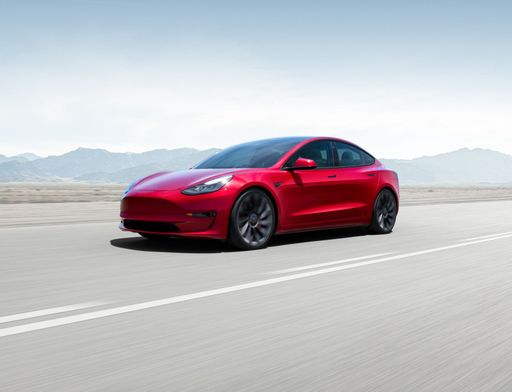
Tesla Model 3
Mercedes EQS SUV
The Mercedes-Benz EQS SUV redefines luxury in the electric vehicle segment with its elegant design and cutting-edge technology. Its spacious interior provides exceptional comfort, featuring high-quality materials and innovative ambient lighting to create a serene driving environment. This SUV impressively combines sustainability with performance, offering a smooth and quiet ride without compromising on power.
details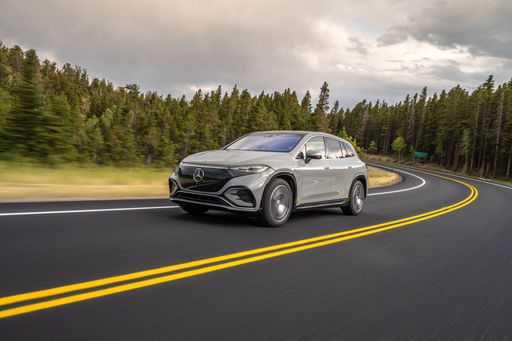 @ group-media.mercedes-benz.com
@ group-media.mercedes-benz.com
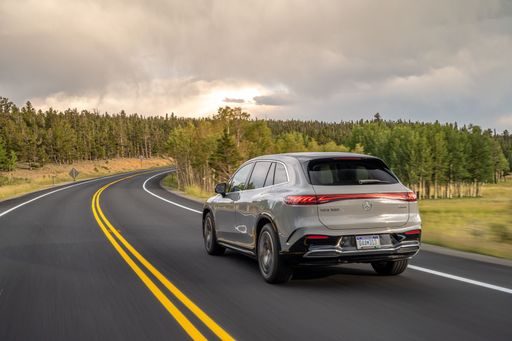 @ group-media.mercedes-benz.com
@ group-media.mercedes-benz.com
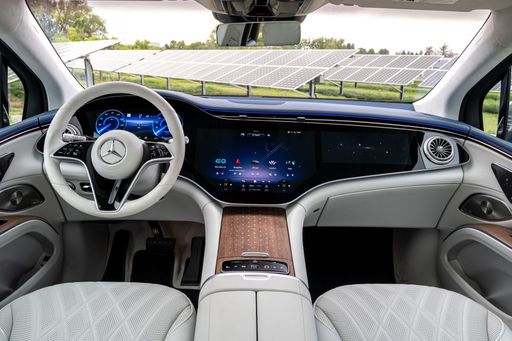 @ group-media.mercedes-benz.com
@ group-media.mercedes-benz.com
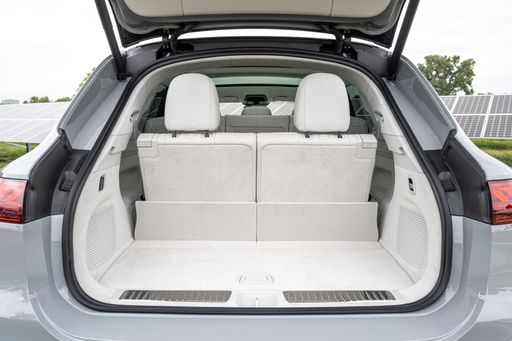 @ group-media.mercedes-benz.com
@ group-media.mercedes-benz.com
Tesla Model 3
The Tesla Model 3 stands out in the electric vehicle market with its sleek design and impressive performance capabilities. It offers a seamless driving experience that combines advanced technology with minimalistic interiors, creating a futuristic feel on the road. Additionally, its range and charging infrastructure make it a practical choice for both city commuting and longer journeys.
details @ tesla.com
@ tesla.com
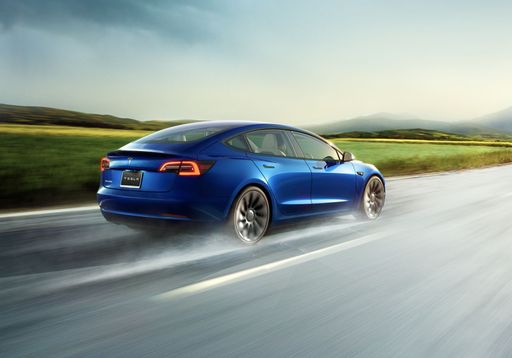 @ tesla.com
@ tesla.com
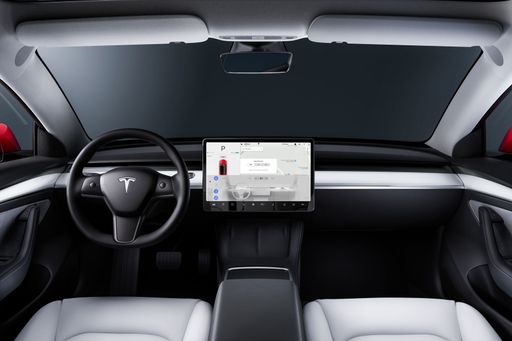 @ tesla.com
@ tesla.com
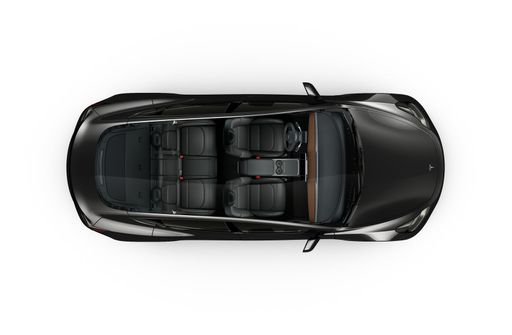 @ tesla.com
@ tesla.com

|

|
|
|
|
Costs and Consumption |
|
|---|---|
|
Price
95000 - 212100 £
|
Price
34300 - 50100 £
|
|
Consumption L/100km
-
|
Consumption L/100km
-
|
|
Consumption kWh/100km
19.6 - 21.9 kWh
|
Consumption kWh/100km
13.2 - 16.7 kWh
|
|
Electric Range
615 - 695 km
|
Electric Range
513 - 702 km
|
|
Battery Capacity
108.4 - 118 kWh
|
Battery Capacity
64.5 - 79 kWh
|
|
co2
0 g/km
|
co2
0 g/km
|
|
Fuel tank capacity
-
|
Fuel tank capacity
-
|
Dimensions and Body |
|
|---|---|
|
Body Type
SUV
|
Body Type
Sedan, Hatchback
|
|
Seats
4 - 5
|
Seats
5
|
|
Doors
5
|
Doors
4 - 5
|
|
Curb weight
2695 - 3075 kg
|
Curb weight
1822 - 1929 kg
|
|
Trunk capacity
440 - 645 L
|
Trunk capacity
594 L
|
|
Length
5125 mm
|
Length
4720 - 4724 mm
|
|
Width
1959 - 2034 mm
|
Width
1850 mm
|
|
Height
1718 - 1721 mm
|
Height
1431 - 1440 mm
|
|
Max trunk capacity
2100 L
|
Max trunk capacity
-
|
|
Payload
425 - 570 kg
|
Payload
303 - 333 kg
|
Engine and Performance |
|
|---|---|
|
Engine Type
Electric
|
Engine Type
Electric
|
|
Transmission
Automatic
|
Transmission
Automatic
|
|
Transmission Detail
Reduction Gearbox
|
Transmission Detail
Reduction Gearbox
|
|
Drive Type
All-Wheel Drive, Rear-Wheel Drive
|
Drive Type
Rear-Wheel Drive, All-Wheel Drive
|
|
Power HP
360 - 658 HP
|
Power HP
283 - 460 HP
|
|
Acceleration 0-100km/h
4.4 - 6.8 s
|
Acceleration 0-100km/h
3.1 - 6.1 s
|
|
Max Speed
210 km/h
|
Max Speed
201 - 262 km/h
|
|
Torque
568 - 950 Nm
|
Torque
420 - 660 Nm
|
|
Number of Cylinders
-
|
Number of Cylinders
-
|
|
Power kW
265 - 484 kW
|
Power kW
208 - 338 kW
|
|
Engine capacity
-
|
Engine capacity
-
|
General |
|
|---|---|
|
Model Year
2024
|
Model Year
2023 - 2024
|
|
CO2 Efficiency Class
A
|
CO2 Efficiency Class
A
|
|
Brand
Mercedes-Benz
|
Brand
Tesla
|
Is the Mercedes EQS SUV offered with different drivetrains?
The Mercedes EQS SUV is available as All-Wheel Drive or Rear-Wheel Drive.
The prices and data displayed are estimates based on German list prices and may vary by country. This information is not legally binding.
